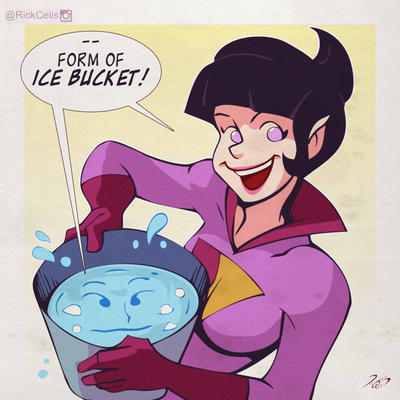Final word first so you can skip the boring parts.
4 runs of this game and I am still intrigued. That alone puts it in the top 20th percentile. My Gut, which as John Cusack said in High Fidelity, tends to have shit for brains.
But my Gut says this is a good but not great game. There's a lot to like, but it just seems to miss...something.
Theme is meaningless
It is so fabricated that it's not really worth mentioning. So if your thing is theme integration, play Fresco.
Mechanics
First there are the 5 tribes of which we speak, color coded with meeples.
There are also 30 tiles arranged on the board, also with symbols.
The 30 tiles each get 3 random meeples placed on them. Sort of like this
So the mechanic is, take the pile of meeples off one tile, and move by dropping one on an orthogonal tile until the last meeple is dropped. The last meeple dropped must match one of the meeple colors on the ending tile.
So you've moved. Now what?
Well, first you are awarded all the meeples of the final color dropped on that tile (will always be at least 2), check ownership of the tile and activate the tiles power.
So in order of that last sentence...
Awarded Meeples:
Each color has its own unique power.
Yellow gives you end game points, 1 for each yellow dude and tiered points for most yellows. In a 4 player game, most yellows gets 30 points, 2nd most gets 20, 3rd gets 10 and 4th place gets a rock.
Green gets you trade goods and Fakirs.
Getting different trade goods gets you points. It's exponential with a ceiling. Each good is worth more and more until about the 7th good, and then each subsequent one is worth 10 points. 10 points is a lot, so deal with the ceiling.
Fakirs are kind of a wild card. They make Red and Blue meeples better, or can be substituted in some White meeple costs.
Red removes a doober from another square. The more reds you pulled off, the farther they can shoot. This is handy, as I will explain in the the check ownership section.
Blues award you points immediately. It's a formula that I'm not going to describe here because, even with context it makes my eyes cross. Let's just say that a poor Blue play nets you about 2-4 points and a good blue play can net you 14+.
Whites earn you two points each and can also be used later to purchase genies.
no not that one.
no not that one either.
Genies add more VPs than just a white meeple and also grant you some additional power for the remainder of the game.
Check Ownership:
If after moving, you pull the last meeple off the tile you landed on OR you shoot the last meeple off with Red guys, you claim that tile. Tiles are worth 4-15 VP. The highest scoring tiles (10, 12 and 15 points) only have a single tile. The remaining tiles are worth 4, 6 or 8.
Wonder Twin Powers Activate!:
Whether you claimed ownership or not, the tile you landed has a power that activates. For clarity sake, each tile has exactly one power, but the powers are duplicated on all 30 tiles.
Two are MUST dos. If there's a tree symbol, you place an Oasis token on it. If there's a building symbol you place a Palace token. The controller of this token gets bonus points. 3 per oasis and 5 per palace. And yes, multiple oasis and palaces can be on the same tile.
3 are MAY dos.
You MAY pay 3 points to buy any trade good within the first three spots of the trade good queue. (oh yeah trade goods have a queue. 9 are available per round, order matters)
You MAY pay 6 points to buy any two trade good within the first 6 spots of the queue.
You MAY pay 1 white meeples and 1 Fakir or 2 white meeples to buy a Genie.
Bidding for turn order and Genies
Bidding
You bid points for turn order based on a track.
This is also exponential. Teal is covering the highest bid possible of 18 points.
Pink is covering the 12 point bid.
then 8-5-3-1-0-0-0
Zeroes are first in, last out. If you're the first to bid nothing, you will move last this round. Then everyone fills in ahead of you.
now the order on when you place your bid is randomized for round 1, then based on the subsequent bids from here on out. In the above pic, next round, Teal will bid first followed by Pink, Black and Orange.
Genies
Genies allow some exception to the core rules. Like get a free trade good, or your Red guys can shoot two guys off a tile now. Some require a white guy/Fakir activation and some are just free. They all give VPs too, in a range of 4-10.
Tactics
zomg. I am 100% Zoolander at this game.
Routinely, people I think struggled do well and the people I think did well struggle.
A winning score is about 140 points. You start with 50 to bid with, and the game lasts about 9 turns. So, the winners average netting 10 points a turn. The weak scores are somewhere in the mid 120s, so the losers average around 8.
So my obvious weakness is I have no idea how to bid! That seems important. Get your net 10 per round.
It seems like green guys and yellow guys cancel each other out. Like if you go hard to win yellow, there's a good chance you shorted yourself on green and vice versa. And the practical points ceiling for both of these is around the same. Green does has a higher maximum, but the opportunity cost for getting there is probably huge.
Loops! Loops are important. You can't backtrack on your move but you can visit the same tile multiple times with a loop. The starting stack of meeples must have 5 minimum to make a loop.
Don't mess with the [10,12,15] stacks if there's 3 colors on them. If you pick them up, you have simplified the ownership problem in such a way that you're now way less likely to claim these.
White meeples and Genies are problematic. I'd definitely take advantage of them over the course of the game if I have them to spend and landed on the proper tile. I'm just skeptical that you can build a strategy around targetting Genies.
So why good and not great?
I actually think this game is just a hair too complex. The only thing you do is optimize your turn because for most of the game, there will be a 10+ point move out there.
Now every move changes the board. If I ever got to the point that I was able to routinely influence my opponents move by what I left this game might be great.
It just seems like there's entirely too many moving parts to worry about 'good leaves'









No comments:
Post a Comment